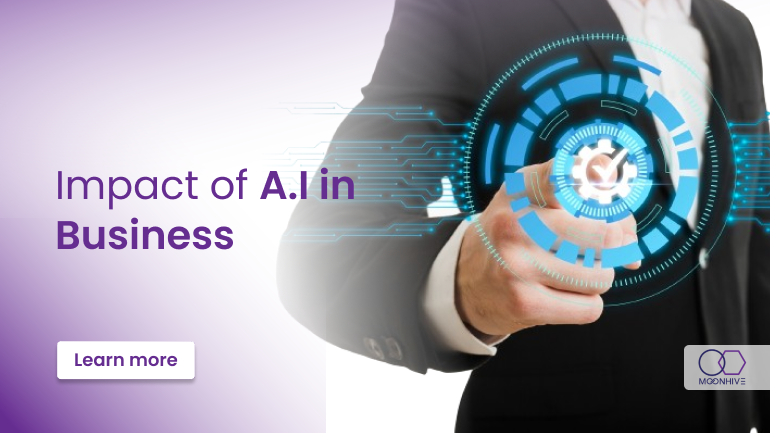Today’s era is marked by various high-end, state-of-the-art technological advancements, but there is one innovation that stands out as a huge life-changing, transformative solution that has taken the whole world by storm. Artificial Intelligence, also known as AI, from automating routine tasks to deciphering insights from massive loads of Data, Artificial Intelligence has quickly become a mainstay of implementing business strategies and prompt decision-making.
Artificial Intelligence is not a new concept, but its popularity and usefulness have been increasing rapidly in recent years. AI has the potential to revolutionize the way businesses operate and interact with their customers.
Let us explore the rise of AI in business and how it is transforming the corporate world.
An Overview of Artificial Intelligence in Business
AI is the development of computer systems that can perform tasks that would typically require human intelligence. It includes machine learning, natural language processing, and robotics. AI can be used in various industries, including healthcare, finance, transportation, and retail.
The rise and implementation of AI in business has been growing steadily over the years, as companies realize the potential benefits and competitive advantages it can bring. AI can help businesses increase efficiency, improve accuracy, and reduce costs. It can also provide insights and predictions that can help companies make informed decisions.
Applications of AI in Business
AI has numerous applications in business, including:
Customer Service:
AI-powered chatbots can interact with customers and provide support 24/7. Chatbots can answer frequently asked questions, provide product recommendations, and even process payment transactions. This can help businesses save time and money while improving customer satisfaction.
Marketing and Sales:
AI can help businesses personalize marketing and sales strategies by analyzing customer data and behavior. It can also predict customer needs and preferences, allowing businesses to tailor their offerings to specific individuals.
Supply Chain Management:
AI can help businesses optimize their supply chain operations by predicting demand, identifying potential bottlenecks, and recommending solutions. This can lead to more efficient and cost-effective operations.
Human Resources:
AI can help businesses automate HR processes, such as recruiting, onboarding, and performance management. This can save time and reduce errors while providing a better candidate experience.
Challenges and Risks of AI in Business:
While AI has many potential benefits, it also comes with its own set of challenges and risks. One of the main concerns is job displacement. AI has the potential to automate many tasks that are currently performed by humans, leading to job losses in some industries.
Another concern is the biased system. AI systems are only as unbiased as the data they are trained on. If the data contains biases, the AI system will also be biased. This can lead to discriminatory outcomes, such as facial recognition software that is less accurate for certain races.
At last, there is a big risk of misuse. AI can be used for malicious purposes, such as cyber-attacks or deep-fake videos. Businesses need to be aware of these risks and take steps to stop them.
Therefore, in the present global scenario, AI is transforming business operations in many ways. It has the potential to improve efficiency, reduce costs, and provide valuable insights. However, it also poses some challenges and risks that need to be addressed.
As Artificial Intelligence continues to evolve, businesses need to stay informed and adapt to the changing landscape to remain competitive.
